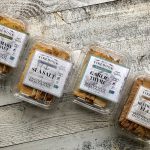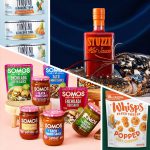Documents Show FDA Questioned Impossible Burger Safety Claims

Impossible Foods’ plant-based “Impossible Burgers” is considered “bleeding-edge” by its all-star lineup of tech world investors, but new information shows that the U.S. Food and Drug Administration (FDA) has questioned the company’s claims about the safety of one of its main ingredients.
Recently obtained documents from the FDA by The New York Times and the ETC Group, a consumer advocacy group that monitors the effects of new technologies on food and agriculture, reveal that in 2015 FDA officials questioned Impossible Foods about its use of soy leghemoglobin containing heme protein, a compound found in all living things. The use of soy leghemoglobin is what gives Impossible Burgers its meat-like taste.
“[The] FDA believes the arguments presented, individually and collectively, do not establish the safety of soy leghemoglobin for consumption,” agency officials wrote in a 2015 memo obtained by the Times through a Freedom of Information Act request, “nor do they point to a general recognition of safety (GRAS).”
Per Impossible Food’s request, the FDA ceased evaluation of the company’s GRAS notice later that year in order to allow the company to address the agency’s concerns. Despite the halt to the GRAS notice, Impossible Foods was still permitted to sell its burger because the agency did not conclude soy leghemoglobin was unsafe. Last summer Impossible Foods first launched its burger at Momofuku Nish, the restaurant of acclaimed chef David Chang. Now the product is in 43 restaurants, including Bareburger and Umami Burger locations.
Impossible Foods spokesperson Rachel Konrad told NOSH the company feels today’s Times article “contains errors of omission, irrelevant comments and quotes presented entirely out of context.” She said Impossible Foods complies with federal food safety regulations, and has — and still is — voluntarily providing its safety data to the FDA, in addition to the safety information provided on its website.
The company has also undertaken additional efforts to ensure product safety, Konrad noted. Konrad said this year Impossible Foods performed a comprehensive study, which found rats who consumed the equivalent of more than 200 times the amount of heme that the average American already consumes daily from other products showed no evidence of adverse effects.
“The FDA allows companies to engage experts in food safety — either third parties or its own employees — to determine if a food is GRAS. Impossible Foods engaged respected, objective academics, who are among the world’s top experts in food safety and allergenicity. They repeatedly agreed that Impossible Foods’ key ingredient, soy leghemoglobin, is GRAS,” Konrad said. “[Still] Impossible Foods has conducted comprehensive safety testing and submitted the results to the FDA via the GRAS Notification process — which is above and beyond what’s strictly necessary.”
Food and beverage attorney Justin Prochnow, who does not directly work with Impossible Foods, told NOSH if a company seeks to use an ingredient that is not an approved food additive or GRAS by regulation, the only thing that company must do is establish the ingredient as GRAS through common use in food prior to 1958 or by “scientific agreement.”
“Many companies don’t submit it and just keep it in their files if questioned by FDA or others. The reason is that the FDA doesn’t approve the GRAS submissions. At most, the FDA responds with a ‘no questions at this time’ response, but it may also respond that it has questions,” Prochnow said. “So, typically, unless a retailer or other business partner demands that a company submit the GRAS affirmation to FDA to get the ‘no questions’ response, most companies view it as there being no real upside to submitting to FDA.”
FDA spokesperson Marianna Naum told NOSH the FDA has been in discussion with Impossible Foods, and encourages all companies using food ingredients they have independently concluded are GRAS to reach out to the agency.
“We note that there is no requirement under the FD&C Act for companies to notify the FDA of a GRAS conclusion,” Naum said “However, companies are responsible for ensuring that ingredients added to food are safe and in compliance with applicable laws and regulations.”
If there are safety concerns, Naum noted, the FDA “may take appropriate action to protect public health,” as it did with caffeinated alcoholic beverages.
The questions regarding the safety of soy leghemoglobin come less than a week after the company officially announced it closed a $75 million round of funding, bringing its raised funds to over $200 million dollars since launching in 2011. During last week’s funding announcement, the company had also noted its intent to refile its GRAS notice, which it reiterated in a statement today.
“The No. 1 priority of Impossible Foods is the safety of our customers — and we believe that people want and deserve total transparency about the food they eat,” Impossible Foods CEO and Founder Patrick Brown said.












